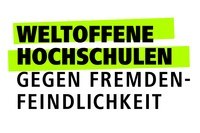Promotionsvorhaben
An Exploration of Work-Life Balance in the Context of Women's Entrepreneurship
Name
Claire Zerwas
Status
Abgeschlossen
Abschluss der Promotion
Erstbetreuer*in
Prof. Dr. Harald von Korflesch
Gutachter*in 2
JProf. Dr. Kerstin Ettl
Interest in the phenomenon of work-life balance has increased drastically among researchers and practitioners in recent decades. There is a vast number of publications on work-life balance in both academic journals and in the popular press. Various reasons for the current interest in worklife balance can be identified. For example, the literature often highlights increased work demands for women and men or the integration of women – who are still responsible for a larger share of family and home responsibilities – in the labor market as important reasons. Furthermore, technological tools such as e-mail, mobile phones and portable computers allow for work to be done ‘twenty-four seven’ (24/7). These changes in society are provoking private and public discussions on work-life balance. It is sometimes believed that self-employment is a solution to many workplace problems – above all to the balancing of work and life – in particular, women are motivated to become entrepreneurs due to expectations of a higher work-life balance. However, the existing literature provides only initial answers regarding the relationship between work-life balance and women’s entrepreneurship. Research on work-life balance has focused almost exclusively on the experiences of individuals employed in large businesses or other organizations. However, these lessons from large organizations’ employees are not transferable to the entrepreneurship context. Entrepreneurs are said to have considerably more flexibility and autonomy regarding their working lives in comparison to organizationally employed individuals.This results in a research need concerning work-life balance in the context of entrepreneurship – especially women’s entrepreneurship.
Based on this research need, the objective of this thesis is to explore work-life balance in the context of women’s entrepreneurship to gain a comprehensive understanding of the factors that influence the work-life balance of women entrepreneurs. To achieve this objective, the women’s entrepreneurship “5M” framework by Brush, De Bruin & Welter (2009) is chosen as the conceptual foundation. It is a comprehensive framework to investigate women’s entrepreneurship. The framework encompasses five dimensions – management, money, market, motherhood and macro/meso environment – and guides the study of work-life balance in this thesis. To gain a deep understanding of the “5Ms”, the present thesis continues the original literature review by Brush et al. (2009). Building on this understanding, an expert study is conducted to explore the role of the dimensions of the “5M” framework for the work-life balance of women entrepreneurs. Semistructured interviews with experts in the field of women’s entrepreneurship from academia and practice are analyzed and interpreted based on a thematic qualitative text analysis. As part of the analysis, a multiphase coding approach is applied to the interview transcripts.
This analysis gave rise to the new “7M” model, which is composed of seven dimensions and the corresponding factors that influence the work-life balance of women entrepreneurs. All five dimensions from the original “5M” framework proved to be relevant for women entrepreneurs’ work-life balance, but in the context of work-life balance, the original “macro/meso environment” dimension needs to be split into two dimensions – “macro environment” and “meso environment” – because they address very different aspects. Furthermore, a new dimension – “myself” – is of importance and introduced in this thesis. This results in seven dimensions, which are summarized in the “7M” model. However, the analysis identifies many overlaps and interactions between these dimensions. Code frequencies indicate that the dimensions market, motherhood and management are particularly relevant to the worklife balance of women entrepreneurs. An in-depth analysis of all seven dimensions allows for a more detailed insight into the specific role of each dimension for women entrepreneurs’ work-life balance. Furthermore, this analysis illustrates that women entrepreneurs are a highly heterogeneous group and that their work-life balance results from a complex interplay of various interrelated factors. Additionally, the thesis discusses blurring between work and private life in the context of women’s entrepreneurship. Finally, strategies that can enhance the work-life balance of women entrepreneurs are derived based on the “7M” model. In particular, the “management” dimension provides many specific starting points for women entrepreneurs to improve their work-life balance. To summarize, this thesis draws a comprehensive picture of work-life balance in the context of women’s entrepreneurship, with a particular focus on thespecific factors that influence women entrepreneurs’ work-life balance.





